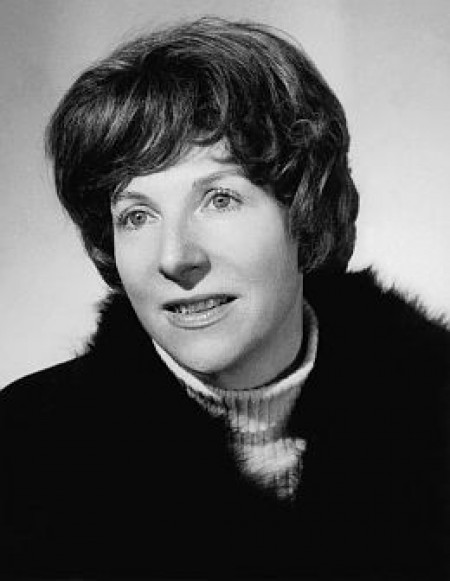
25 July 1928, Budapest – 20 October 1999, Budapest
Melinda Kistétényi was a person of extremes. In the possession of extraordinary gifts, she lived a life which resembled those of her less talented contemporaries. "A flash of brilliance" is the title Máté Hollós gave to the studio conversation he had with her, and during this barely an hour long programme one could witness the magnetic effect of this, by then seventy-one year old, person. She demonstrated honest pathos, but nothing artificial, no poses. She was someone constitutionally incapable of weighing up her life's experiences in columns of assets and liabilities.
Her student years – in those days not uniquely – were "messy", to say the least. It is difficult to follow her career from the Music Academy yearbooks: periods of study alternate with periods when she was absent. We can first find her name in the 1933/34 yearbook – at that time still as Melinda Kaindl. At the age of seven she was Klára Franck's pupil at the Academy's practice class led by Irén Senn. Occasionally she studied privately, at times under the direction of her mother – who, for all her life, remained for her an ideal to be emulated. As a secondary school pupil, she became acquainted, thanks to her adult chamber music partners, with the world of chamber music as well. She matriculated after 1945, and began attending the Music Academy. She studied church music with Lajos Bárdos, conducting with János Ferencsik, and composition with János Viski, gaining a singing and music teacher's diploma in 1949. The studies begun, abandoned and then resumed again lead one to the conclusion that her interests were always seeking to find a way in the web of possibilities, but on the whole without having a definite "goal", or practical career plans. It is interesting to wonder: did the occasional music-making partners recognise in her the musician with a calling when they recommended her here and there? (In this case the calling manifested itself as a total commitment to music-making.) She must have been a kind of Jolly Joker, with a pitch-perfect ear, unbeatable ability to sight-read, thorough knowledge of the musical literature – and, not least, human reliability.
She could not, however, do sol-fa, and thus, when in her first year she entered a sol-fa competition, it was in the highest category, where doing sol-fa was actually forbidden. She became deputy choir master and couch at the SZOT (Translator's note: National Council of Trade Unions) choir, then worked at the Music Academy, first helping singing teachers and then working in the choir master department From 1955 she gave classes in sol-fa, and from 1957 was professor of sol-fa, till she retired in 1989.
From 1959 she appeared as an organist and from 1962 gave regular concerts all over the country. The two three-week trips, in the course of which she played on the great organs of England and Scotland (1965, 1968), were among the great experiences of her life. She improvised with great gusto and invention, often compiling her programmes so as to leave the second half for improvisation. Later she surprised the audiences by singing as well, to her own accompaniment.
"I compose occasionally, luckily not always for my drawer", she said modestly. She mainly composed organ pieces, songs and chamber works. We meet her name as a translator of texts primarily in the volumes of The masters of song.
She regarded art as a service - though pompous statements were alien to her. She approached the musical greats, particularly the music of Bach, which she respected above all others, with humility and devotion. She had the gift of enthusiasm – a great gift, particularly if there are resonating mediums with whom the experience can be shared. She was a personality in an age when there was no great demand for personalities. But there is always a need for them, as demonstrated by the pedagogical experience of decades: her enthusiasm usually proved infectious.
She did not start out life with a conscious commitment to teaching - the "what shall I be when I grow up?" type questions were alien to her nature in any case – but looking at the quality of her one-time pupils, she belonged to the most effective teachers. That is because whatever the topic happened to be, her class always became a "Melinda class". Possessing outstanding gifts, she could hardly appreciate the limitations of those with less ability; the only thing that perplexed her even more was lack of commitment. She could not comprehend that someone should not want to know as much as possible about music, should not want to get closer – through their works – to the greatest creators. Few could avoid getting ensnared by her personality, thus her classes had an inspiring atmosphere. She was sensitive to all manifestations of talent, and had a special sense for sincere expression. It is the stuff of legend how much praise she was able to squeeze into the remark column of her best students' indexes. And she did all that so agelessly, at such a constant high intensity over such a long time, that we hardly noticed that this – in András Kroó's apt characterisation –"phenomenal, adolescently scatter-brained old lady" was slowly leaving our daily lives.
K. F.


